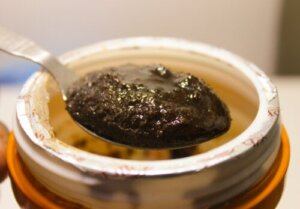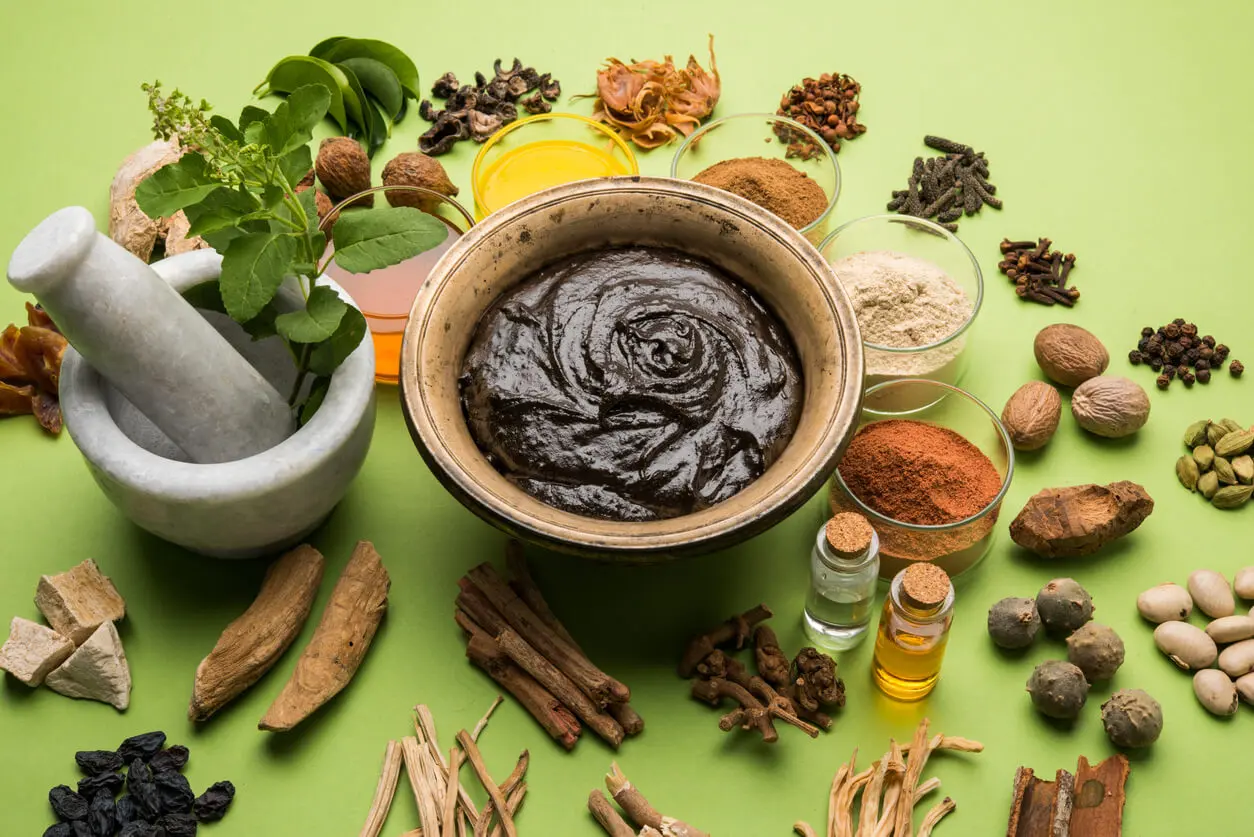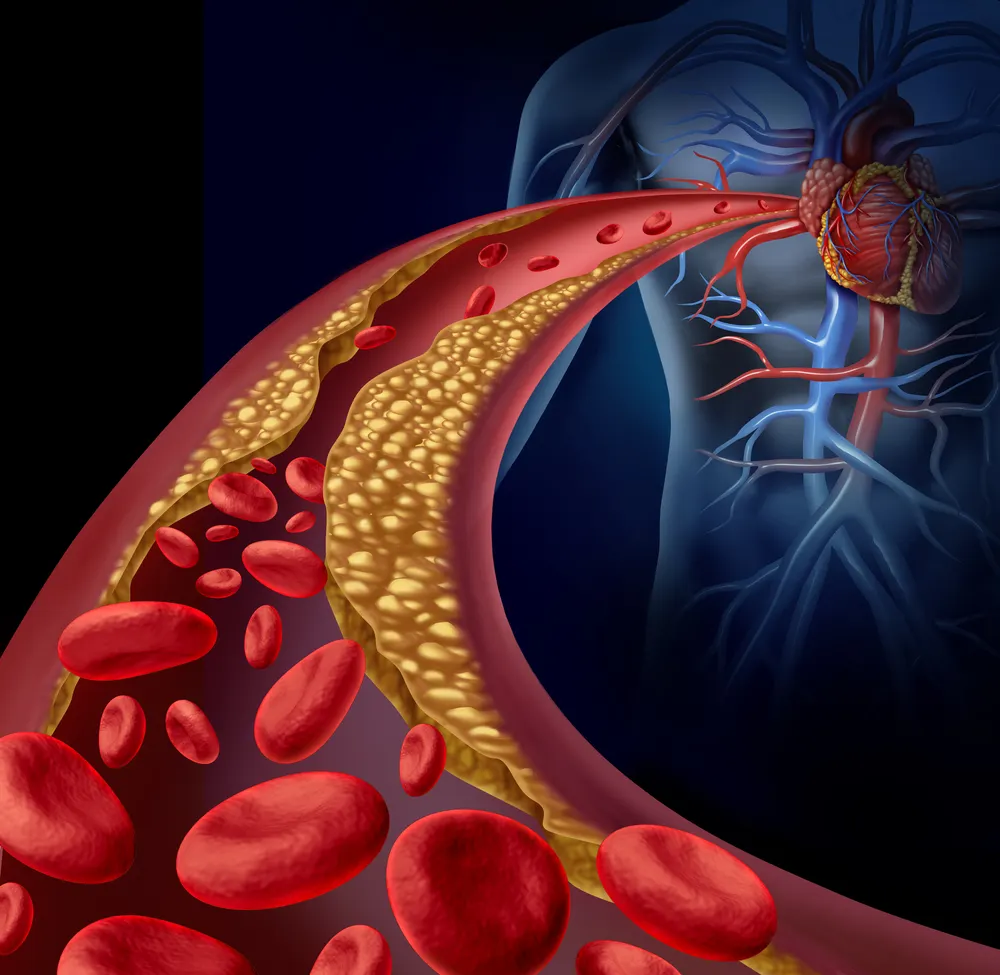Chyawanprash: The Nutritional Value and Uses of Indian Jam


Written and verified by the nutritionist Maria Patricia Pinero Corredor
Chyawanprash is a kind of jam with origins in India, which has many myths that surround it. One legend even claims that Chyawana, a Hindu man, managed to maintain good health for many years thanks to this elixir.
However, there’s not much information about the veracity of the story. What is known are its benefits from a scientific perspective.
They call it the “elixir of youth.” It has a dark color, thick texture, and sweet taste with a touch of acid. More than 40 plants are used for its preparation, including fruits and spices.
The nutritional value of chyawanprash
The nutritional value of chyawanprash lies in several factors that we’ll tell you more about below. First of all, it’s important to highlight that its low cholesterol and fat content and its high content of vitamin C and saponins.
In fact, 100 grams of this jam contain:
- Calories: 35
- Fat: 7 g
- Sodium: 5 mg
- Total carbohydrates: 7.5 g
- Fiber: 500 mg
- Total sugars: 3.5 g
- Vitamin C: 3.4 mg
- Total flavonoids: 20 mg
- Alkaloids: 80 mg
- Piperine: 4,2 mg
- Phenolic compound: 235 mg
The base ingredients of this herbal mixture are compounds such as the following:
- Honey
- Sugar syrup
- Sesame oil
- Bamboo manna
- Clarified butter
- Indian gooseberry pulp
Although more than 40 compounds are used to make this jam, it’s these that are in the highest proportion in the mixture. In 10 grams of chyawanprash there is 206 mg of sugar syrup, 706 mg of honey, 5880 mg of sugar, 206 mg of sesame oil, and 206 mg of butter, for example.
We think you may also enjoy reading this article: A Simple Recipe for Homemade Peach Jam
The health benefits of chyawanprash
Chyawanprash is rich in antioxidants and saponins, providing it with certain benefits. Among them, the main recognized benefit is that it can help boost immunity. In a study, more than 40 ingredients were analyzed with their respective active elements. Thus, it’s known that some compounds have anti-ulcer, bronchodilator, anti-allergic, anti-inflammatory, analgesic, antimicrobial, antioxidant, and antipyretic effects
It also has components with diuretic, hepatoprotective, immunomodulatory, and neuroprotective functions. Each ingredient in this preparation has a reason for being there.
The oldest known recipe for chyawanprash is from the Charaka Samhita, an ancient text of traditional Ayurvedic medicine. The writing dates back to the 2nd century.
However, despite the original indications of the recipe, variations over the years and misuse by pharmaceutical companies have led to significant changes. There are even some plants that are part of the formula and are in danger of extinction.

It improves physical performance
In ancient times, it was believed that this jam was able to improve intellect, memory, immunity, physical endurance, and the functioning of the senses. Current science proved that it is indeed capable of improving physical performance. In a book, it’s revealed that the synergy between its components makes it an interesting tonic that’s capable of boosting vitality.
It helps with digestive functioning
Among many of the benefits attributed to chyawanprash, one is its possible help with digestion. According to one article, some herbs it contains improve digestion and fat metabolism. In addition, it favors the assimilation and passage of the active ingredients of nutrients through the cell wall.
It strengthens the respiratory system
In a controlled trial with 90 patients with pulmonary tuberculosis who were administered 10 grams of chyawasprash two times a day, it was detected that it increased the bioactivity of anti-tuberculosis drugs. In addition, hemoglobin levels improved.
It has an antioxidant effect
Antioxidants are compounds capable of fighting free radicals. Compounds such as flavonoids, vitamin C, carotenoids, phenolics, and tannins are the most recognized antioxidants by science. So, chyawanprash is an interesting cocktail in this sense.
In a comparative study between different commercial brands of chyawanprash, it was found that, although the formula may vary, it retains an antioxidant effect on cells, preventing aging and long-term disease.
Another study comparing different brands found potent free radical scavenging. To a large extent, the antioxidant effect is attributed to ascorbic acid or vitamin C.
However, it’s not only vitamin C that has this effect. In another study, which lasted six months and involved children aged 5 to 12, scientists credited tannins, polyphenols, and flavonoids with improving the immune system.
Like this article? You may also like to read: How to Make Low-Sugar Citrus Jam
It may be cardiotonic
It may have cardiotonic effects because it lowers blood fats and balances metabolic disturbances, according to an animal study. However, it’s still a territory that needs more scientific studies on humans.

It improves the reproductive system
Although the existence of aphrodisiac foods has been much debated, it’s known that chyawanprash enhances the male reproductive system, as it improves the quality of seminal fluid. A systematic study of one of the compounds in the herbal mixture found that it increased sperm concentration and improved sperm motility.
It may have a radioprotective effect
Chyawanprash was found in studies to have anti-radiation effects. Mice were given a lethal dose of radiation and then given the compound. There were a large number of survivors. However, this is an animal experiment only, so the benefits can’t be extended to humans.
The uses of chyawanprash
Chyawanprash has a large number of uses in Hindu culture. However, despite this, careful use under medical supervision is recommended. In 2005, the Canadian government banned its commercialization, arguing that it may contain high levels of lead and mercury.
So, although it’s a popular product in India, the recommendation is to inquire about local regulations. In any case, it’s always best to consult a specialist to establish safety and dosage.
All cited sources were thoroughly reviewed by our team to ensure their quality, reliability, currency, and validity. The bibliography of this article was considered reliable and of academic or scientific accuracy.
- Kumar A., Kaur P., Rinwa P. Estudio comparativo de varias marcas comercializadas de Chyawanprash indio por su potencial ansiolítico y antioxidante. En t. J. Pharm. Res. Biosci. 2012; 1 :296–310.
- C.P.Thakur. The Ayurvedic medicines Haritaki, Amla and Bahira reduce cholesterol-induced atherosclerosis in rabbits. International Journal of Cardiology. Volume 21, Issue 2, November 1988, Pages 167-175
- Sharanbasappa Durg. Withania somnifera (Indian ginseng) in male infertility: An evidence-based systematic review and meta-analysis. Phytomedicine. 2017.11. 11.
- Jagetia, G.C., Baliga, M.S., Venkatesh, P. and Ulloor, J.N. (2003) Influence of Ginger Rhizome (Zingiber officinale Rosc) on Survival, Glutathione and Lipid Peroxidation in Mice after Whole-Body Exposure to Gamma Radiation. Radiation Research, 160, 584-592. http://dx.doi.org/10.1667/RR3057
- Rohit Sharma. Chyawanprash: A Traditional Indian Bioactive Health Supplement. Biomolecules. 2019 May; 9(5): 161. Published online 2019 Apr 26. doi: 10.3390/biom9050161
- Ojha, J.K., H.S. Bajpai, P.V. Sharma, M.N. Khanna, P.K. Shukla and T.N. Sharma (1973) Chyavanprash as an anabolic agent — experimental study (preliminary work).
This text is provided for informational purposes only and does not replace consultation with a professional. If in doubt, consult your specialist.








